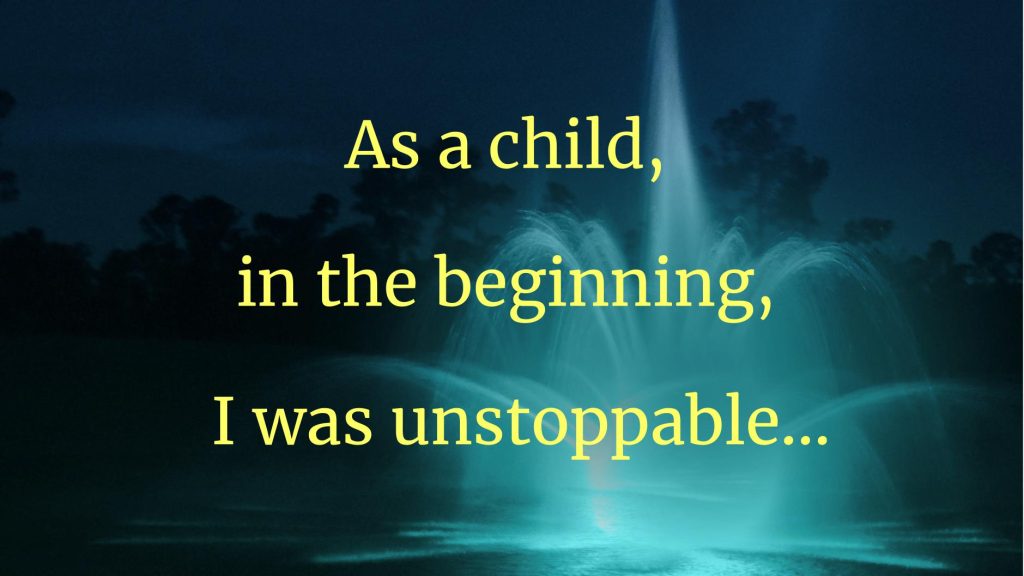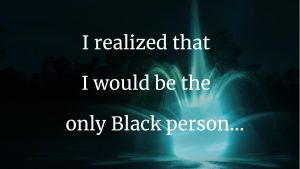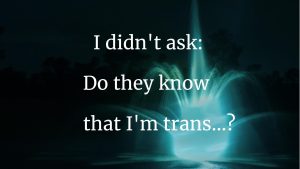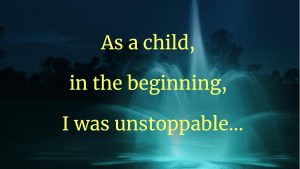Editor’s Note: This piece was awarded an honorable mention in the Pulse writing contest, “On Being Different.”
I was born with what was described as a “mild” case of achondroplasia, a genetic condition that affects bone growth and causes short stature.
The average height of an adult female with achondroplasia is 4 feet 1 inch; I am 4 feet 5 inches tall. I do not have some of the “characteristic” facial features such as a prominent forehead or flattened nasal bridge. The average person remains unaware of my condition until I stand up.
This condition does not run in my family. My parents and siblings are all 5 feet 8 inches or taller. The only person in my orbit who also has achondroplasia is my dad’s college roommate’s daughter; very random, I know.
As a child, in the beginning, I was unstoppable. Nobody could tell me that I couldn’t do something. But once I got out in the world, that changed—especially as I entered double digits, when my brother, five years younger, began to surpass me in height. I’d go out in public with family or friends and see people take pictures of me, or ask questions. (Sometimes, even now, a small child will ask why I’m so short, and the parent will get down on their level and explain, while looking at me—making me feel like I’m on display.)
My mother tried to stress that my differences weren’t a big deal.
“You can’t be mad,” she’d often say, “because God made you this way.”
Hearing this made me feel as if I could conquer the world. But it also gave rise to an inner debate: I wasn’t mad—or was I? The God I was raised with had made me this way for a reason, right?
These experiences led to a general sense of anxiety about being out in public.
Over time, I developed a defensive mindset—and certain coping techniques. I learned to make “short” jokes about myself so that others don’t have the chance. I might tell a curious kid that I didn’t eat my vegetables when I was a child, or tell them that I’d tell Santa hello next time I saw the big guy. In the market, I might make a crack about myself if I had to ask another adult to reach for something on a higher shelf.
When I began my first “adult” job, as a case manager in the substance-use-disorder field, I remember feeling defensive before I even walked through the agency’s door.
Once, a patient there who was receiving treatment for active alcohol withdrawal called me a “midget.” It wasn’t done in malice, but through lack of understanding.
My supervisor wanted to kick him out of the program: “Wouldn’t we do the same with any other derogatory language?”
I couldn’t let her do that; for me, the resulting risk to him on the street was not worth it. But it still rankled.
I could hear my parents’ voices from my childhood.
“They just think you’re beautiful,” my mom would say.
“You have to be okay with it; they just don’t know better,” Dad would add.
I’d just smile in response, my untapped anger brewing underneath. For years, my anger had continued to build, until it exploded and just about killed me. In my first year of college, the anger I’d suppressed throughout my childhood and teenage years led to severe depression, and I made an attempt on my life. It was through that experience, and the healing that came from it, that I entered the fields of art therapy and mental-health counseling.
In 2015, I walked into a new place of employment—my dream job—with a master’s degree still warm from the printer, ready to prove myself as more than my 4 feet 5 inches gave me credit for.
I worked so hard to make up for what I saw as my height deficiency that I failed to see its benefits. I took on every task I could, to keep anyone from thinking that my height might prevent me from doing everything they could do. I never said no or set boundaries. And I had plenty of opportunities to prove myself.
I remember standing between a patient and her mother, both more than six feet tall, screaming and swinging at each other above my head. I couldn’t look either one in the eye, but using my voice alone, I broke up their fight.
“Sally,” I told my patient, “if you don’t stop fighting, you’ll be kicked out of the program.” She heard me—and stopped. (I’m still surprised that no one got slugged.)
From then on, Sally’s mom recounted the story to anyone who would listen, always concluding: “Don’t mess with the little one.”
I would smile and give a “Don’t mess with me” shrug. I could tell that I was feeling healthier and more confident in who I was, based on the fact that I could find this pride and know that my height wasn’t slowing me down.
Still, something about my disability convinced me that I would never make it to a management role. Even now, I find myself thinking, How could I stand in front of a team, expecting them to see me as their leader, when I still look like their middle-schooler? Sometimes, at my height, it’s hard for me to take myself seriously; how can I expect others to do so?
However, for the last two years now. I’ve been the coordinator of an inpatient substance-use-disorder treatment program.
When I told my mom I’d been promoted to a management role, she responded, “Of course. You’re a ‘disability quota hire.’ ”
In that one statement, all my hard work with these patients whom I loved so much seemed to evaporate. Despite my good rapport with my team, I often wondered, How do they really feel about my being in charge? Do they take me seriously? Is this my own brain messing with me again?
This inner turmoil continued until I heard some wise words spoken by one of my patients, Jane. (It’s extremely unfortunate how society discounts addicts and their wisdom, just because of their personal struggle with addiction.)
The group had been talking about having to prove themselves when they went back out into the world, because of how addicts are viewed by society. They described feeling misunderstood by the social-service workers and doctors from whom they’re trying to receive help, and how they feel safe with the staff at the agency.
“Miss Jess understands,” Jane said. “She knows what it feels like to be judged.”
Hearing this, I felt deeply moved. In true therapist fashion, I’d never disclosed to my patients that I know what it feels like to be judged; it was just what they had witnessed in our dealings together. They knew that I’d be able to feel their struggle and understand the judgment they endured, because I walked through a similar fire daily.
My simmering anger and resentment faded. I realized that I didn’t have to fight to be taken seriously: I was already valued by those who mattered.
I’ve always felt small, but in this moment I truly felt mighty.









5 thoughts on “Small but Mighty”
I have always hated being tall (5’8”), but your essay has given me an entirely new perspective on height. Our inner selves matter more than our appearance. Continue your journey of growth.
Very thoughtful description of what your life has been like. Look at how far you’ve come. You help the rest of us not want to give up when set apart.
Passionate, personal, professional, profound. Brilliant and honest.
What a powerful story! And so beautifully written! Thank you, Jesse!
Jesse, thank you for this.
I’m a 5’10”, 96 pound woman. I have an inkling what you are talking about. When you said you felt like you are sometimes “on display”, I suddenly, for the first time, realized that’s exactly how I sometimes feel, so thanks for that too.